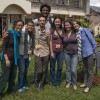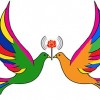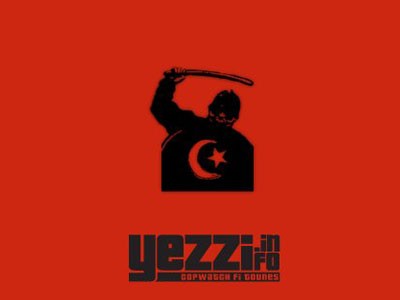Stories about Technology from July, 2012
YouTube Show Brings China's Social Media to an English Audience
Want to know what’s going on on China’s social media but cannot speak Chinese? Keep on reading, then. It’s been four months since Elle Lee (@ElleIconLee) and Casey Lau (@hypercasey) opened a Youtube channel to broadcast Weibo Today, a weekly online show spotlighting trending topics from China's social networks in English. We talked to Elle Lee about their show.
Social Media and Armenia’s 2012 Parliamentary Elections
Following a bitterly disputed presidential election in 2008, parliamentary elections held on 6 May 2012 were a crucial test for Armenia’s democratic system. What role did social media play?
Arab World: Detect Dialect Search Tool for Twitter
On Twitter, @Detect_Dialect is pushing for Detect Dialect – a dialect-specific search tool for Arabic content on Twitter. In addition to Classic Arabic, Arabs speak their local dialects, which sometimes differ even between neighbouring villages. This new tool claims to detect the dialects of Gulf, Iraqi, Levant, Egyptian and Maghreb...
World: Is a Declaration of Internet Freedom What the Internet Needs?
More than a week after rights groups unleashed the Declaration of Internet Freedom, the blogosphere continues to weigh in on the document.
India: Video of Sexual Assault Goes Viral, Media Ethics Questioned
Instead of helping an Indian girl being assaulted by 20 men outside a pub in Guwahati, the cameraman from a local Television channel shot a 30-minute video of the incident. The video has gone viral, with many raising media ethics questions and wondering whether India is becoming a nation of bystanders.
South Korea: Net Neutrality Debate Re-emerges
Net neutrality debates in South Korea re-emerged after a recent government decision. South Korean online space erupted with complaints blaming the government for favoring telecommunication companies.
Russia: Computer Security Tips for Russian Opposition
Following the recent hacking [en] of activist Alexey Navalny's email, LJ user vishka shares some basic tips [ru] on “computer security for the Russian opposition”: “Having set it all up once, you'll never notice the difference in usability. I've armed you, and if they continue to hack you, it means...
Tajikistan: Big Brother to Watch Internet Activity in the Country
Authorities in Tajikistan plan to "track down and identify" individuals who publish materials and leave comments deemed insulting to the country's leadership. Netizens respond with a flurry of angry comments.
St. Lucia: The Global Voices Summit from a Caribbean Perspective
The recently concluded Global Voices Summit in Nairobi, Kenya featured many discussions which are particularly relevant to the Caribbean. Here's a quick rundown of topics that citizen journalists and bloggers from the region may find relevant...
Mozambique: Has Social Media Killed Blogging?
On a short series of posts, professor Carlos Serra writes about some of the reasons why Mozambique's blogsphere is fading away. One reader comments that blogging requires a load of work in order to ensure updates and quality. Whereas Serra says that social media may need to be blamed, despite...
Africa: Social Media Skills for African Youth With Disabilities
African youth with disability around the continent took part in a social media workshop in Dakar, Senegal early this month. The workshop was organized by Disability Right Initiative and Open Society Foundation, Haute Haiku reports.
Allegations about the UN Tech Exports to North Korea
The North Korea Tech blog wrote about the latest revelation that the U.S. Government is looking into exports of computer equipment to North Korea by the World Intellectual Property Organization (WIPO).
Bulgaria: PM Boyko Invites Creators of “Boykometer” for a Chat
A few days ago, the web site Politikat.net, created by prominent Bulgarian bloggers Komitata (Konstantin Pavlov) and Asen Genov, became the subject of the government's attention. Ruslan Trad reports.
Mozambique: Innovative Ways of Producing and Distributing News
Johannes Myburgh shared on Twitter the Mozambique Media Landscape guide, which he helped produce with Infosaid media project. Radio is considered the country's “most important channel of communication”, but Infosaid highlights independent and electronic newspapers – such as Faísca, Whampula Faz and Global Voices partner @Verdade [pt] – as...
Turkmenistan: Silent Anniversary of Deadly Blasts in Abadan
One year after the explosions at an arms depot in Abadan, officials in Turkmenistan hardly mention the deadly incident. Instead of commemorating the victims of the blasts, they prefer to suppress information, hoping that the Turkmen will forget about what had happened. Netizens are silent as well after the authorities detained several bloggers and put one of them in jail for covering the explosions.
Bulgaria: Budget Expenses in Open Access
On July 3, the Bulgarian government voted [bg] for a national roadmap compliant with the Open Government Partnership Initiative requirements. As an integral part of this action plan, the Ministry of Finances launched its transparency plan [bg] and started publishing budget expenses details on an everyday basis.
Brazil: Activists Support Civic Framework for Internet
Internet activists are discussing the civic framework (“marco civil”) for internet in Brazil, to be voted on National Congress today. Mega Yes Movement [pt] says the framework will establish fundamental rights online, and urges netizens to read [pt], tweet (#MarcoCivil), and petition about it. Mega Yes activists previously engaged on...
South Asia: First Pakistan-India Social Media Summit
A social media summit between Indian and Pakistani netizens titled the “Social Media Mela 2012″ will take place on the 13th and 14th of July 2012. The seats are limited and excitements are plenty among the netizens, reports Faisal Kapadia.
Russia: A Great Firewall to Censor the RuNet?
The Russian language section of Wikipedia suspended service today in protest against a draft law now under review by the Russian parliament that many believe threatens the RuNet with censorship. Kevin Rothrock reports on the political context and details of the legislation.
Tunisia: Online Platform to Monitor Police Abuse
Yezzi is an online Tunisian collaborative platform, which documents and reports police abuse and wrongdoings. For years, police corruption and abuse went unnoticed and unpunished in Tunisia. People would talk about it among themselves, but only few would dare speak up in public or resort to justice. Yezzi aims to change that.
Uzbekistan: ‘National’ Social Network Not Quite a Facebook Clone
Youface, the "national" social networking service launched in Uzbekistan, has been criticized by some netizens as a "bad copy" of Facebook. Yet, the service which reportedly aims to "boost patriotism" is different from both Facebook and Russian-language social networks popular with Uzbek users. Some netizens and experts fear that the real aim of the "national" platform is to control Internet users in the country.















